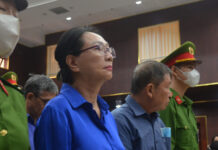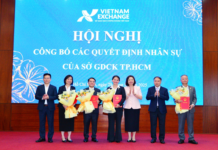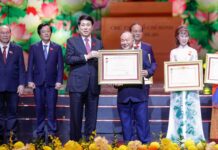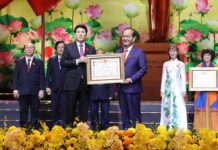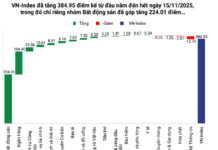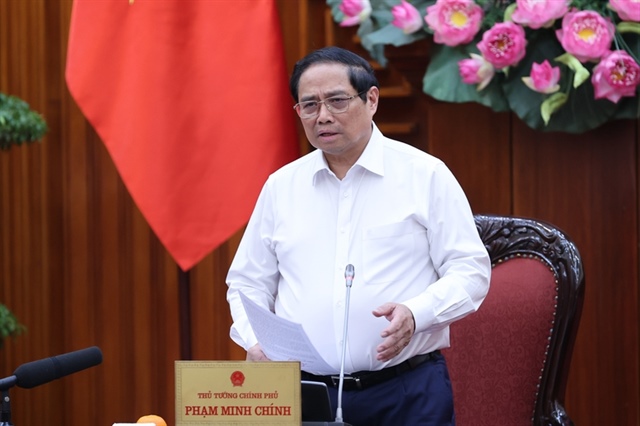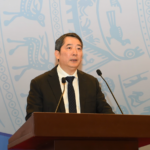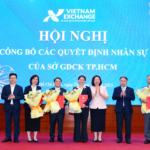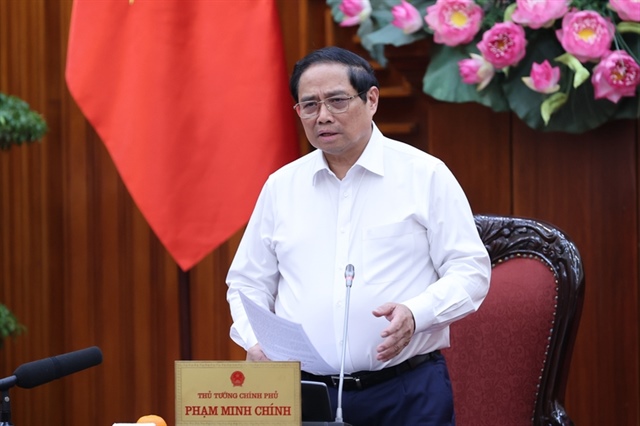
Prime Minister Pham Minh Chinh speaks at the meeting on August 16. Photo: VGP |
The meeting discussed the report proposing amendments to the Law on State Budget, Law on Management and Use of Public Assets, Law on National Reserves, Law on Accounting, Law on Independent Audit, Securities Law, and Law on Tax Administration.
Prior to this, the Steering Committee for Reviewing and Handling Obstacles in the System of Legal Documents held two meetings to identify areas that need to be amended in laws with numerous urgent obstacles that need to be addressed.
In his conclusion, Prime Minister Pham Minh Chinh emphasized that the proposal to amend the above-mentioned laws has solid political, legal, and practical foundations, thereby implementing the resolutions of the Party, conclusions of the Politburo, and directives of the key leaders, as well as resolutions of the National Assembly and the Government.
This undertaking holds significant importance, contributing to the implementation of the three strategic breakthroughs, especially the breakthrough in institution building and perfection; prevention of corruption and negativity; and addressing the fear of mistakes and responsibility among a part of officials and party members. It also fulfills the aspirations of the people and businesses for reducing administrative procedures, red tape, and compliance costs.
The Prime Minister affirmed the determination to remove obstacles in legal documents and requested the Ministry of Finance to prioritize allocating time, resources, and competent leaders to manage this task, as well as assign capable, dedicated, and responsible officers to it.
Regarding the scope of amendments and supplements, the Prime Minister basically agreed with the Ministry of Finance’s proposal to develop a law to amend and supplement seven laws in the financial sector. He instructed the ministry to continue reviewing and addressing urgent obstacles to facilitate the removal of difficulties in production and business activities.
These amendments will promote economic growth, control inflation, and stabilize the macro-economy, ensuring the major balances of the economy. They will also mobilize and effectively utilize all resources for development, achieving the goals and tasks set by the 13th Party Congress.
The Prime Minister emphasized additional guiding principles: Promote decentralization and delegation of power along with resource allocation, enhance implementation capacity, clarify the responsibilities of each agency and level, and provide tools for enhanced supervision and inspection; Cut redundant administrative procedures that create an environment for corruption, wastefulness, and bureaucracy, eliminate the “asking-giving” mechanism, and reduce red tape and harassment; Central ministries and sectors should focus on performing state management tasks and not intervene in specific tasks.
Additionally, manage the state budget by expanding the revenue base, combating wasteful spending, and flexibly utilizing central and local capital sources. Increase revenue and allocate savings from budget expenditures to large and important projects; Remove obstacles in public asset management to achieve both efficient management and optimal resource utilization; National reserves must be flexible to promptly handle urgent situations; Accounting regulations should provide a clear legal framework for implementation; Promote the application of information technology and digital transformation in tax administration.
The Prime Minister instructed the Ministry of Finance to promptly incorporate the meeting’s opinions, revise and finalize the proposal for the law project, especially the content of the policies. The ministry should also closely coordinate with the agencies of the National Assembly, seek opinions from the business community, affected entities, experts, and scientists.
Based on this, the ministry will submit the proposal to the Government for consideration and report to competent authorities on matters beyond its jurisdiction. The proposal will then be submitted to the National Assembly for consideration and approval in the near future, ensuring progress and quality to meet practical requirements.
Tung Phong
Territory-based credit policy in Ho Chi Minh City shows nearly 39% growth
Credit programs, not only support and assist the poor and vulnerable, who are the main subjects of policies in Ho Chi Minh City, with capital for production and business to create livelihoods and employment opportunities, but also play a significant role in the direction of sustainable economic development, economic growth, and social security ensured by the Government.
Will Vietnamese fruit and vegetable exports set a new record?
From the beginning of 2024, the export field of vegetables and fruits in Vietnam has received positive signals, with the estimated export turnover of over 500 million USD. With the current market trends, the vegetable and fruit industry is forecasted to set a new record and contribute 6-6.5 billion USD to the agricultural sector in 2024.






